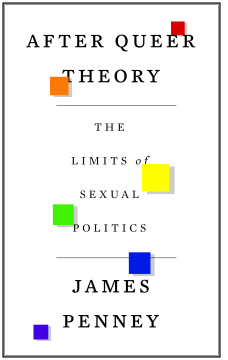
Additional Information
Book Details
Abstract
Is queer theory dead? Through its increasing entanglement with capitalism, James Penney, controversially argues that queer theory has run its course. However, the 'end of queer' should not signal the death of liberatory sexual politics; rather, it presents the occasion to rethink the relation between sexuality and politics.
The book makes a critical return to Marxism and psychoanalysis, via Freud and Lacan, and conducts a critical examination of queer theory's most famous proponents, including Judith Butler and Eve Kosofsky Sedgwick. In doing so, Penney insists that the way to implant sexuality in the field of political antagonism is - paradoxically - to abandon the exhausted premise of a politicised sexuality. He argues that by wresting sexuality from the dead end of identity politics, it can be opened up to a universal emancipatory struggle beyond the reach of capitalism's powers of commodification.
'The audacious and sound thesis of Penney's new book - that the political as such is structured by sexuality - reties the knot between Freud and Marx'
Joan Copjec, Brown University
'States that queer theory is now at a crucial turning point, when the only option is to undertake a radical and thorough critique of its presuppositions and present state. No other critics have undertaken such a project at the present time'
Clive Thompson, School of Languages and Literatures, University of Guelph
'Whether you're convinced or outraged by After Queer Theory, Penney's impressive research demands that you engage with it in the most serious terms'
Nina Power, University of Roehampton, author of One-Dimensional Woman
Table of Contents
| Section Title | Page | Action | Price |
|---|---|---|---|
| Cover | Cover | ||
| Contents | v | ||
| Acknowledgements | vii | ||
| Introduction After Queer Theory - Manifesto and Consequences | 1 | ||
| 1. Currents of Queer | 9 | ||
| 2. The Universal Alternative | 39 | ||
| 3. Is There a Queer Marxism? | 70 | ||
| 4. Capitalism and Schizoanalysis | 111 | ||
| 5. The Sameness of Sexual Difference | 145 | ||
| 6. From the Antisocial to the Immortal | 175 | ||
| Notes | 197 | ||
| Index | 206 |
